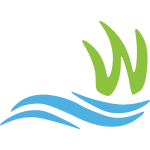Many conservation organizations shy away from advocating on issues because they work closely with local governments or state agencies and don’t want to antagonize them.
But advocacy can also lead to growth. For example, over the last 20 years Organizations in the Waterkeepers Alliance – which advocate and also take legal action against polluters – have grown much faster than typical watershed associations which are usually focused on water quality monitoring and public education but avoid controversy.
Even neutral organizations that provide technical expertise should take advantage of hot Issues in order to highlight the importance of their work.
For example, the Superior Rivers Association provides water quality data to local tribes and municipalities. It sees itself as a technical organization. But when a huge taconite mine was proposed for their headwaters, the organization hosted informational public meetings and used those to recruit new water quality monitors to help establish a baseline and track the water quality in the case that such a mine were built. They increased donations, and the number of trained water quality monitors rose by 50%.
They never took a stand on the taconite mine proposal itself. But they did come out against loosening water quality regulations that stood in the mine’s way, because as a technical organization they valued sound science.
Critical issues like proposed mines are an opportunity highlight the importance of your conservation organization, whether it’s advocacy-oriented, technical or academic.
Online outreach on hot issues lets you reach even more individuals. Originally used only by national groups, today it is ubiquitous among statewide organizations. Local conservation groups should be adopting it now too, because it’s local issues that people feel strongest about.
If you’re curious about online advocacy tools be sure to join us for Kathleen Tyner’s presentation about online advocacy at the West VirginianRivers Coalition. She has tried out three tools so far, with great success. And she has some clear recommendations even for small groups. (Her presentation is Wednesday, the 23rd of March, at 1:00 PM Eastern. You can sign up here.)
